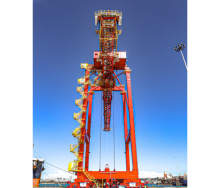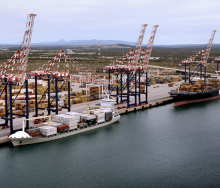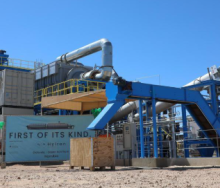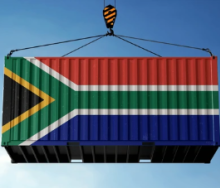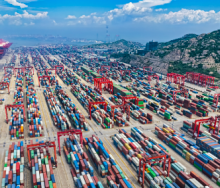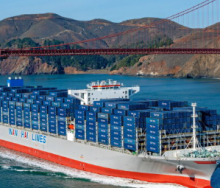Concerned residents of the Komatipoort community and law-abiding road freight operators have for years been complaining about bribe-taking on South Africa’s N4 highway at the Lebombo Border Port.
It is alleged that instead of controlling the queue of tipper trucks bottlenecking into the heavily congested crossing, a transit that was never designed for the high volume of ore transported to the Port of Maputo, corrupt law enforcers are exploiting the situation.
Bribe-taking has reached such levels, sources say, it has turned the border into a ‘toll road for traffic police’.
Especially problematic is a road that perfectly lends itself to truckers unwilling to take their places at the back of the line on the N4.
Often at the behest of the transporters they work for, hard-pressed to maximise profits through quick turnaround times on a supply route jam-packed with trucks, drivers bypass the N4 queue through the agricultural community south of the highway, gunning for the R571, the notorious Mananga Road.
At its T-junction with the N4 just before the border, traffic officials are supposed to stop tippers.
Instead, they’ve apparently worked out ‘a system’ that, when scrutinised, has the appearance of traffic control but is more like shunting trucks back down the R571 until the ‘coast is clear’ to re-enter the queue – at a cost of course.
In the meantime, persistent complaints of truckers paying police to use roads they shouldn’t be, imperilling the safety of pedestrians and road users on gravel tracks and secondary routes meant for the local agricultural community, are not good enough.
Hearsay and allegations will not spur the authorities into action, said Gavin Kelly, CEO of the Road Freight Association.
“They will want proof.
“Members of the public have several options to report corruption,” Kelly said.
“They can go to the nearest police station, report what they’ve seen and get a case. But without proof, it’s not going to help much, if anything.
“They can also take the matter to the Road Traffic Management Corporation (RTMC). They have a special unit that deals with corruption and complaints by the general public in terms of traffic police, whether officials are operating on national, provincial or municipal roads.”
Kelly said this was particularly helpful considering the confusion that often existed over who had jurisdiction over highways such as the N4.
In recent times, people have often complained to the local traffic police chief that nothing happens in the end.
“It’s because the local traffic chief has no say over officials policing a provincial road. People have to make that distinction,” Kelly said.
The best thing to consider doing, he added, was to approach the RTMC, ideally through the RFA.
“In the cases that we have reported to them, we have had very good success. This is especially the case where people have proof but are scared they might be targeted.”
Ultimately, whether it’s through the South African Police Service or the RTMC, proof against perpetrators is paramount, Kelly said.
- The RFA invites complaints about corruption to be sent to: kevin@rfa.co.za


